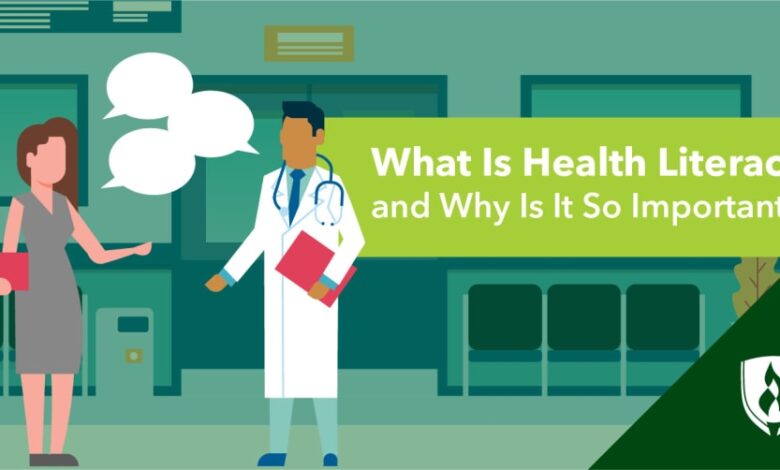Health Literacy and Empowering Patients to Take Control of Their Health

Health Literacy and Empowering Patients to Take Control of Their Health
Health literacy is the ability to access, understand, and use health information to make informed decisions about one’s health and healthcare. It is an important aspect of healthcare as it can impact the health outcomes of individuals, families, and communities. In this article, we will discuss the importance of health literacy and how it can empower patients to take control of their health.
What is health literacy?
Health literacy is the degree to which individuals have the capacity to obtain, process, and understand basic health information and services needed to make appropriate health decisions. It involves not only reading and comprehension skills but also cultural and social factors that influence how people understand and act on health information. Health literacy skills are necessary for individuals to navigate the healthcare system, manage their health and well-being, and make informed decisions about their health.
Why is health literacy important?
Health literacy is important for several reasons. First, it is linked to better health outcomes. Patients who have higher health literacy skills are more likely to understand their health conditions, adhere to medication regimens, and engage in healthy behaviors. Second, it can reduce healthcare costs. Patients who are health literate are less likely to make unnecessary visits to the emergency department or seek care for preventable conditions. Third, it can improve the quality of care. When patients are health literate, they are better able to communicate with their healthcare providers, ask questions, and participate in shared decision-making.
How can healthcare professionals improve health literacy?
Healthcare professionals play a critical role in improving health literacy. They can improve health literacy by communicating effectively, providing written information, using the teach-back method, and encouraging questions. Communicating effectively involves using plain language, avoiding medical jargon, and checking for understanding. Providing written information in a clear and concise manner can also help patients understand their health conditions and treatment options. The teach-back method involves asking patients to explain in their own words what they have learned, to ensure that they have understood the information. Encouraging questions can also help patients feel more comfortable and empowered to ask for clarification or more information.
What are some common barriers to health literacy?
Some common barriers to health literacy include language barriers, limited education, and low health literacy skills. Language barriers can make it difficult for patients to understand medical terminology or ask questions. Limited education can make it challenging for patients to read and understand written information. Low health literacy skills can make it difficult for patients to navigate the healthcare system or understand their health conditions.
How can patients improve their health literacy?
Patients can improve their health literacy by taking an active role in their health and healthcare. This involves asking questions, seeking reliable information, taking notes, and following instructions. Patients can also ask for help from their healthcare providers or community resources such as literacy programs or health educators.
Why is it important for patients to take control of their health?
Taking control of one’s health can improve overall health outcomes, reduce healthcare costs, and improve quality of life. Patients who are empowered to take control of their health are more likely to engage in healthy behaviors, adhere to medication regimens, and participate in shared decision-making. They are also more likely to feel confident and satisfied with their healthcare.
In conclusion, health literacy plays a crucial role in empowering patients to take control of their health. Healthcare professionals can help patients become health literate by communicating effectively, providing written information, using the teach-back method, and encouraging questions. Patients can take control of their health by improving their health literacy skills, asking questions, seeking reliable information, taking notes, and following instructions. With the right tools and resources, patients can become active participants in their healthcare and improve their overall health outcomes.



